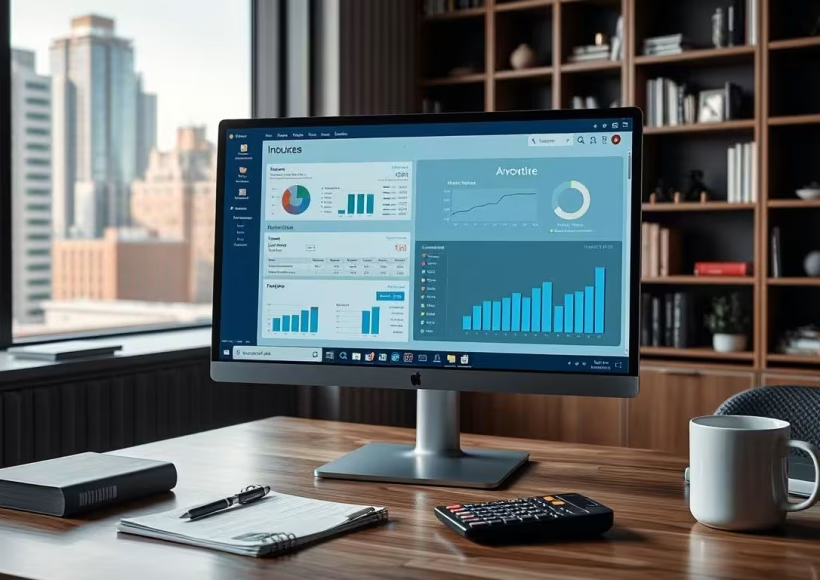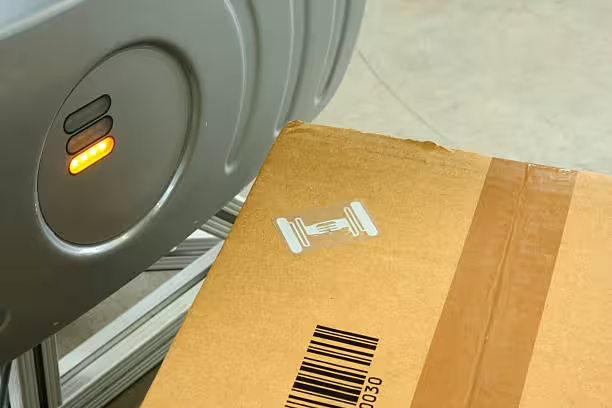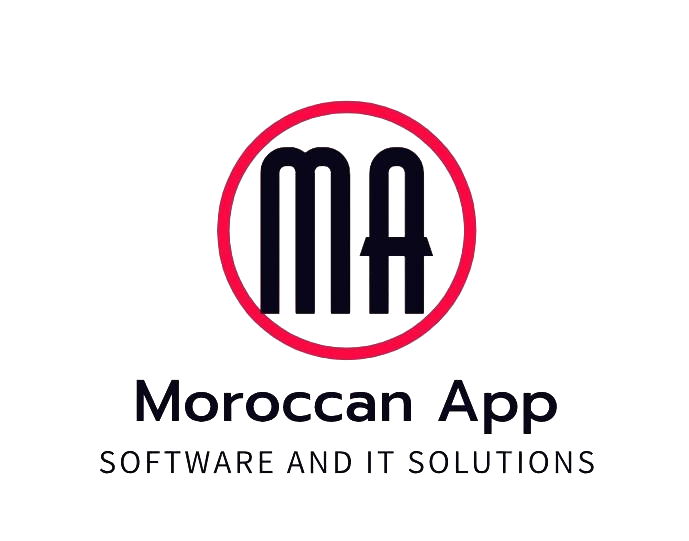- Mon - Sat 8:00 - 17:30, Sunday - CLOSED

Invoicing and inventory management software: Guide for SMEs in Morocco
Small and medium-sized enterprises (SMEs) are essential in the Moroccan economy. They represent the majority of businesses. To remain competitive, managing invoicing and inventory well is crucial. This guide will help you choose the right software for your needs. It is designed specifically for SMEs in Morocco. Key Findings The importance of integrated management for Moroccan SMEs Moroccan SMEs face daily challenges, especially in invoicing and inventory management. Effective management of these essential processes can greatly improve their business performance. The daily challenges of Moroccan businesses Many Moroccan SMEs use manual and disorganized methods for invoicing and inventory tracking. These methods can lead to errors, delays and wasted time. They can also affect customer satisfaction and business productivity. Impact on Business Performance Poor invoicing and inventory management can seriously impact business performance. Issues like unfulfilled orders, stockouts, and inaccurate invoices can lead to lost revenue. They can also decrease customer confidence. Benefits of digitalizing processes Using integrated management software allows Moroccan SMEs to digitalize their business processes. This helps to automate invoicing and manage inventory in real time. Inventory management and Sales tracking improve, which improves overall operational performance. By using the right SME tools, Moroccan companies can overcome these challenges. This can be a real competitive advantage for them. Inventory billing software Morocco: Solutions available on the market Morocco offers a wide range of business management software, ERP software and integrated billing solutions for SMEs. These digital tools simplify invoice and inventory management. They also improve the productivity and profitability of small and medium-sized businesses. Here are some of the main solutions available in Morocco: Each of these solutions has its own features, pricing and integration levels. It is crucial for Moroccan SMEs to understand their needs. This way, they can choose the integrated invoicing solution that best suits their business. Software Key features Pricing Benefits for SMEs Odoo Invoicing, inventory management, accounting, CRM Starting at €25/month Modular, scalable, and 100% cloud platform EBP Invoicing, quotes, order tracking, inventory management Starting at 49€/month Solutions specially designed for Moroccan SMEs Sage Invoicing, accounting, inventory management, payroll Starting at 39€/month Close integration with existing accounting systems These business management software, ERP software and integrated invoicing solutions provide Moroccan SMEs with powerful tools. They help optimize administrative and commercial processes. Choosing the right solution depends on the specific needs of each company, in terms of features, budget and integration with existing systems. Criteria for choosing management software for your business When looking for SME accounting software in Morocco, you have to choose wisely. It is crucial to consider several key criteria. This will help you find the best software for your purchasing management and electronic invoicing. Essential features to consider Start by listing the features that are important to your business. Here are some points not to be missed: Budget and ROI The cost of software is a key element, especially for SMEs in Morocco. Think about the long-term return on investment. Consider the productivity and efficiency gains that the software can bring. Compatibility with Moroccan legislation Finally, make sure that the software is compatible with Moroccan legislation. This concerns electronic invoicing and purchasing management. This protects you against the risks of non-compliance. “Choosing the right management software is essential to optimize your processes and boostthe performance of your Moroccan SME.” By considering these criteria, you will find the SME accounting software perfect for your business. Cloud vs. On-Premises Solutions: Comparative Analysis Choosing an inventory management and invoicing software is crucial for your business. The decision between a cloud solution and an on-premises solution is an important one. Each option has its pros and cons to consider depending on your needs. Benefits of Cloud Solutions Benefits of On-Premises Solutions The choice between a cloud solution and an on-premises solution depends on your priorities. Analyze your needs carefully to choose the ideal SME cloud solution for your business. “Integrated management of invoicing and inventory processes is essential for Moroccan SMEs in a context of increasing digitalization.” Advanced features of modern management software Modern management software brings great changes. It helps Moroccan SMEs to better manage their work. Here are three key points that make things more efficient. Automating invoicing processes Automating order management saves time. It also reduces errors. The software automatically creates invoices and sends them to customers. There is also real-time inventory tracking. This makes supply chain management and product management easier. Real-time inventory management The inventory tracking features are very advanced. They allow you to know the status of your inventory at any time. This avoids stock issues and improves order management. Automatic alerts and detailed reports help to react quickly to changes in demand. Reporting and statistical analysis Modern software has reporting and analysis tools. They provide key information on the performance of companies. Custom dashboards and predictive analytics help make better decisions. This improves order management and supply chain management. Feature Benefits Automated invoicing – Save time– Reduce errors– Real-time inventory tracking Real-time inventory management real – Avoid stock shortages– Optimize order management– Respond quickly to fluctuations Reporting and statistical analysis – Obtain essential insights– Make informed decisions– Improve product management “The advanced features of modern management software are a real asset for Moroccan SMEs that want to gain in efficiency and competitiveness.” Integration with existing accounting systems Integrating new invoicing and inventory management software with your accounting systems is crucial. It gives you a holistic view of your finances. This helps you make better decisions and improve the efficiency of your business. Modern invoice management software and inventory management tools integrate well with accounting software. They avoid errors due to manual entries. You will have a financial dashboard updated in real time. When choosing invoicing and inventory management software, make sure it integrates well with Moroccan accounting software. This compatibility makes it easier to set up and manage your finances. FAQ What are the main benefits of invoicing and inventory management software for Moroccan SMEs? Invoicing and inventory management software offers several advantages. It automates processes and

How to Choose the Ideal Inventory Software for Your Business in Morocco
Introduction Choosing the ideal inventory software is a crucial step for businesses operating in Morocco, where effective inventory management can determine the success and profitability of an organization. With so many options available on the market, finding the solution that best fits your business’s specific needs can seem like a daunting task. Business Needs Before you begin your software search, it is essential to understand your business’ specific needs. Here are some things to consider: Essential features In order to facilitate inventory management and optimize operations, the inventory software must include certain essential features. Among these: Compliance and Security In Morocco, it is also essential to choose software that complies with local accounting and tax compliance regulations. In addition, data security must be a priority, with measures to protect against cyberattacks and unauthorized access. Essential criteria such as ease of use, total cost of ownership, and technical support offered by the software publisher are also decisive in the final choice. By evaluating these elements in depth, Moroccan companies can select inventory software that is not only adapted to their current needs but also scalable to meet their future logistics challenges. 1. The Importance of Inventory Software for Businesses in Morocco Inventory management is a crucial task for Moroccan businesses of all sizes and industries. An effective inventory software can transform the way a business manages its inventory, providing several key benefits: Inventory Optimization A inventory software allows you to monitor inventory levels in real time. This helps avoid overstocks and stockouts, by maintaining an optimal balance. Companies can thus reduce storage costs and maximize product availability. Improved Accuracy Manual errors are common when managing inventory by paper or spreadsheets. An automated inventory software significantly reduces these errors through accurate data entry and real-time updates. Save time and increase efficiency Automating inventory processes saves time. Repetitive tasks, such as ordering and receiving, are simplified. This frees up time to focus on strategic activities and enables better productivity. Data tracking and analysis inventory software provides robust reporting features. They allow businesses to track sales trends, identify fast-moving and slow-moving products, and make informed decisions based on accurate data. Integration with other systems A good inventory software can integrate with other business systems like accounting, order management, and point-of-sale (POS) systems. This ensures cohesion and fluidity of operations, eliminating duplication and inconsistencies. Improved customer service Having effective inventory management translates into better customer satisfaction. Businesses can ensure product availability, fulfill orders faster, and minimize delivery delays. Smooth inventory management helps build customer loyalty. Regulatory Compliance Businesses in Morocco must comply with various regulations regarding storage and inventory. Inventory software helps maintain compliant management practices, facilitating audits and inspections. Cost Reduction With accurate inventory management, businesses can identify inefficiencies and optimize their storage processes. This leads to reduced operational costs and more efficient use of resources. Adopting inventory software therefore allows Moroccan businesses to remain competitive in a dynamic market. Automation and optimization of inventory management are key success factors in today’s business world. 2. Understand the specific needs of your business To choose the ideal inventory software in Morocco, it is crucial to first understand the specific needs of your business. Each business has its own characteristics and requirements, here are some essential points to consider: Understanding these specific needs helps identify the essential features of the ideal inventory software, ensuring process optimization and better resource management. 3. Types of inventory software available There are several types of inventory software available on the market, each offering specific features tailored to various organizational needs. Here’s an overview of the main types of inventory software available: 1. Standalone Inventory Software 2. ERP with inventory module 3. Cloud-based inventory software 4. Specialized Software 5. Inventory Management Mobile Apps 6. Free or Open Source Software 7. Integrated solutions with e-commerce platforms 4. Essential Features of a Good Inventory Software A good inventory software must have a number of essential features to meet the varied needs of businesses in Morocco. These features help manage inventory efficiently and facilitate business operations. Inventory software that meets these essential criteria will allow businesses in Morocco to manage their operations efficiently, while reducing errors and optimizing resources. 5. Integration with other systems When choosing inventory software for your business in Morocco, integration with other existing systems is of paramount importance. An inventory management solution must be able to communicate seamlessly with your current systems to ensure efficient and seamless management. Importance of Integration Integrating with other software helps to: Types of systems to integrate Integration Methods Things to Consider When evaluating your inventory software’s integration with other systems, consider : Thus, the ability of inventory software to integrate with other systems is essential to ensure efficient management of your business. 6. Data security and backup When choosing a inventory software for a business in Morocco, data security and backup must be priority criteria. Inadequate data management can lead to significant financial losses and damage the company’s reputation.list-item –> Tutorials and Documentation: A variety of educational materials, such as video tutorials, user manuals, and FAQs, make the software easy to understand. Access to these resources is essential to resolve minor issues quickly. Staff training is a crucial part of ensuring that all employees use the new system properly. Here are some recommendations: Initial Training Sessions: Provide comprehensive training sessions during software implementation. It helps to have experienced trainers to guide the process. Continuing Training: Provide regular training to keep skills up to date, especially after major software updates. Using Super Users: Identify and train super users within the organization who can serve as references for their colleagues. User Feedback: Encourage users to provide feedback to improve future training sessions and adjust software features. By focusing on ease of use and proper staff training, a business can take full advantage of its inventory software, enabling more efficient and accurate inventory management. 8. Cost and ROI When selecting inventory software for a business in Morocco, looking at the total cost and return on investment

How to Use RFID in Morocco: Complete Guide
RFID technology is rapidly transforming the business landscape in Morocco. Moroccan companies are adopting this radio frequency identification solution to improve their operational efficiency. This technology is becoming a key element of digital transformation in several sectors, from agriculture to logistics. This comprehensive guide examines the practical applications of RFID in Morocco and its benefits for businesses. Readers will discover the steps to implement an RFID system, best practices for inventory management, and solutions tailored to Moroccan SMEs. The article also addresses the current challenges and future prospects of this technology in the Moroccan context. Understanding RFID Technology Radio Frequency Identification (RFID) represents a major advance in the field of automatic identification. This technology uses radio waves to store and retrieve data remotely, offering remarkable possibilities for managing and tracking objects. The RFID system is based on two essential components: tags (or labels) and readers. RFID tags, consisting of an electronic chip and an antenna, can store up to 64,000 bits of data, allowing precise and detailed identification of objects. There are three main types of RFID tags: RFID technology is distinguished by its ability to read hundreds of tags simultaneously per second, without requiring a direct line of sight between the reader and the tag. Data can not only be read but also modified or rewritten, providing exceptional flexibility in information management. A complete RFID system also integrates a middleware that processes the collected data and transmits it to the company’s information system. This architecture allows for automated and efficient data management, contributing to improved traceability and inventory management. RFID Applications in Morocco In Morocco, RFID technology is revolutionizing many sectors of activity, offering innovative solutions for operations management. In the supply chain field, this technology enables real-time visibility and efficiency, eliminating errors throughout production, warehousing and distribution operations. The main applications of RFID in Morocco include: In the industrial sector, RFID allows companies to track their products at every stage of production and marketing. RFID tags offer significantly greater storage capacity than traditional barcodes, allowing to process up to 100 tags per second. The technology is also transforming retail. Moroccan retailers are using RFID to automate their inventories and reduce stockouts. RFID gates installed at the entrance and exit of stores provide effective protection against theft. This solution not only optimizes inventory management but also significantly improves the customer purchasing experience. In logistics, Moroccan companies are seeing a significant improvement in their operational efficiency. The technology makes it possible to synchronize physical flows with information flows, providing complete traceability and better anticipation of supply chain malfunctions. Implementation of an RFID system Implementing an RFID system requires a methodical and well-planned approach to ensure its success. Companies should follow a structured process that begins with a thorough pre-study phase to choose the RFID technology that best suits their specific needs. Essential implementation steps include: To ensure successful integration, several critical factors must be considered: End-user involvement is crucial, because the best technological system only works if users comply with its operating mode. Success is based on the combination of three fundamental parameters: the choice of the appropriate RFID standard, the establishment of a precise operating mode, and effective change management. The reliability rate of the system can be optimized thanks to a well-defined and integrated operating mode. Companies must also plan the modification of the activity’s IT management system and promote the rapprochement of several actors around the RFID project. Challenges and future prospects of RFID in Morocco Despite its transformative potential, the deployment of RFID in Morocco faces several significant challenges. The implementation cost remains a major obstacle, with RFID tags costing between ten cents and one euro, five to ten times more expensive than traditional barcodes. Key technical challenges include: Nevertheless, the future prospects are promising. The market for IT equipment for logistics in Morocco is experiencing an impressive growth of 30% to 40% per year. The country’s strategic geographical position, including its proximity to the Eurozone, offers significant opportunities for the expansion of RFID technology. Environmental ambitions are also supporting RFID adoption, with national targets to reduce CO2 emissions by 35%. This technology is perfectly aligned with the national strategy for the development of logistics competitiveness, which emphasizes modernization and operational efficiency. The Tanger-Med port plays a crucial role in this transformation, serving as a strategic hub for the flow of goods to Europe, America, West Africa and Asia. This infrastructure, combined with the flexibility of the Moroccan workforce, positions Morocco as a key player in the adoption of RFID technologies on a regional scale. Conclusion RFID technology marks a decisive step in the modernization of Moroccan companies. Radio frequency identification solutions demonstrate their added value across various sectors, from inventory management to product security. The positive results observed in companies that have adopted this technology confirm its essential role in improving productivity and reducing operational costs. Morocco is positioning itself as a major player in the adoption of RFID technologies in Africa, driven by its strategic geographical location and modern infrastructure. Despite the initial implementation challenges, future prospects remain promising, supported by the continued growth of the logistics market and government initiatives in favor of digital transformation. Moroccan companies that are investing in RFID today are giving themselves the means to effectively meet the growing demands for traceability and operational efficiency. FAQs Q: How can I use an RFID card?A: To use an RFID card, simply pass it in front of an RFID reader. This contactless system allows, for example, to recharge an electric vehicle while securing access and payment. Q: What are the steps to activate RFID on a device?A: To activate RFID, you must first activate the network on a smartphone via the Settings/Networks menus. Then, install an application like NFC Tools on Android, bring the smartphone within 10 cm of the RFID tag and program the desired action. Q: How does RFID access work?A: The RFIDpassive, which does not have a battery, works in read-only mode. The reader sends an electromagnetic signal to



